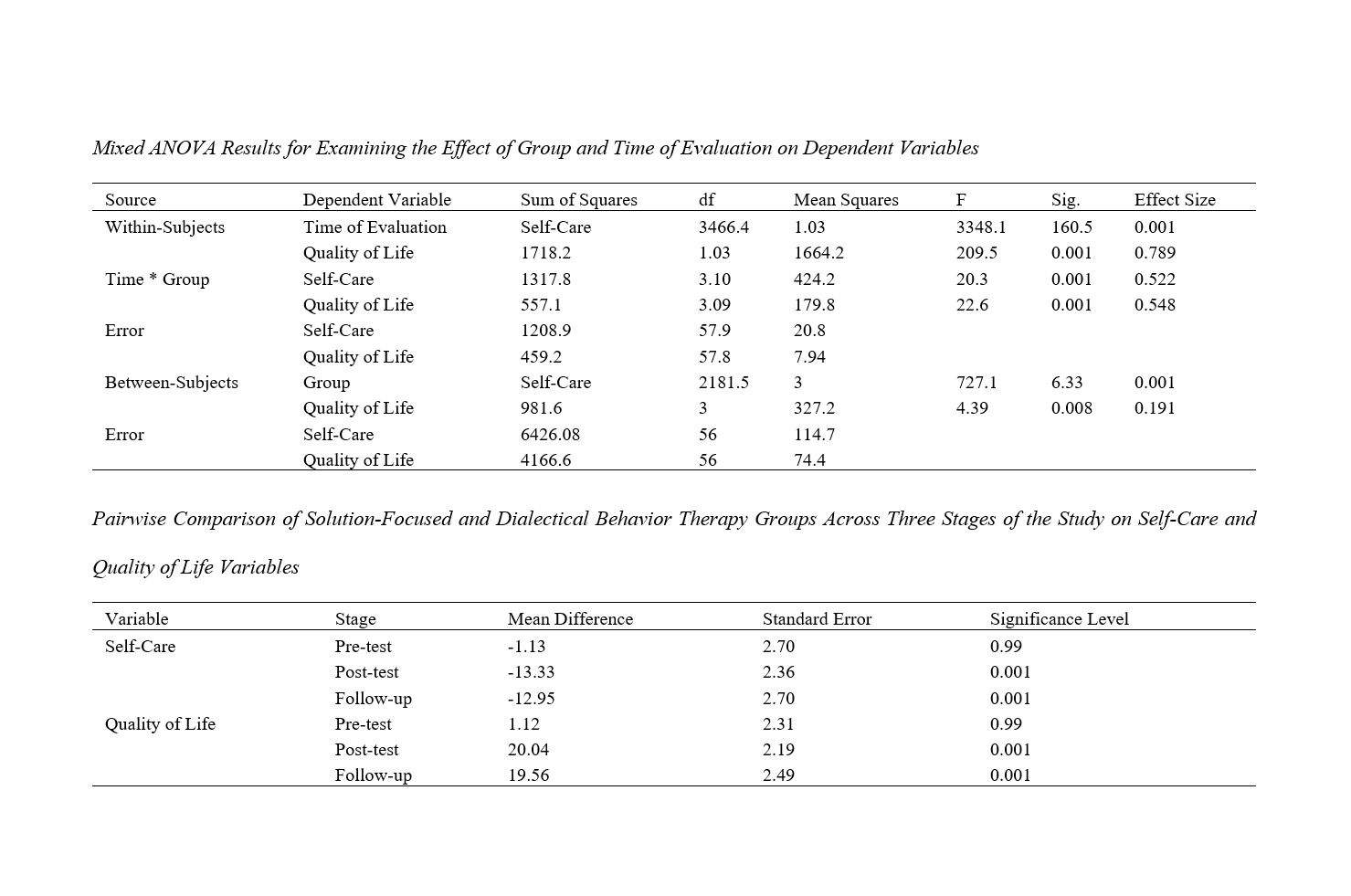Comparing the Effectiveness of Solution-Focused Therapy and Dialectical Behavior Therapy on Self-Care and Quality of Life in Patients with Type 2 Diabetes
Keywords:
Self-care, Dialectical behavior therapy, Solution-focused therapy, Quality of lifeAbstract
The objective of this study was to compare the effectiveness of solution-focused therapy and dialectical behavior therapy on self-care and quality of life in patients with type 2 diabetes. The present research was a semi-experimental pre-test, post-test with control group design including a follow-up period. The study population consisted of women with diabetes attending a health care center in District 6 of Tehran, of whom 45 were purposively selected and randomly assigned to two experimental groups (solution-focused therapy and dialectical behavior therapy) and one control group. The Self-Care Self-Efficacy Questionnaire by Lu (1996) and the WHOQOL BREF quality of life questionnaire were used. The first experimental group underwent seven 90-minute sessions of solution-focused therapy, and the second experimental group underwent eight 90-minute sessions of dialectical behavior therapy. Repeated measures analysis of variance was used for data analysis. Findings indicated that both solution-focused therapy and dialectical behavior therapy significantly improve self-care and quality of life (p < 0.05). Additionally, results showed that dialectical behavior therapy was more effective than solution-focused therapy in improving self-care and quality of life (p < 0.05). In conclusion, both solution-focused therapy and dialectical behavior therapy are effective in improving self-care and quality of life in patients with type 2 diabetes, with dialectical behavior therapy being more effective. Therefore, these approaches can be utilized alongside medical interventions in clinical settings.
Downloads

Downloads
Additional Files
Published
License
Copyright (c) 2024 Zahra Lotfi, Mehrnoosh Sheikhi, Mahta Damavandi, Fatemeh Mirzaei (Author); Negin Towsyfyan (Corresponding Author)

This work is licensed under a Creative Commons Attribution-NonCommercial 4.0 International License.

























